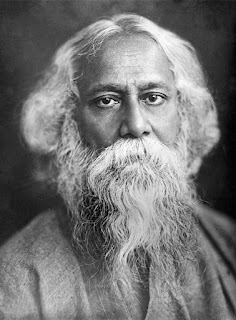Q & A of Stories and Poems
This blogpost is a part of academic activity meant for the students of Diploma Engineering Semseter 01 . This Q & A is prepared as per the curriculum of Communication Skills in English (CSE) recently implemented by the GTU (Gujarat Technological University). This series is prepared in the larger interest of the students and any misuse of it shall invite legal actions.
DISCLAIMER:- IMAGES, VIDEOS, LINKS AND OTHER WEB RESOURCES USED HERE ARE ONLY FOR ACADEMIC PURPOSE. NO COMMERCIAL BENEFIT IS INTENDED OUT OF IT.
Q.1 What is meant by “mind is without fear and head is held high”. Tick the correct answer. (i) to be fearless and self respecting (ii) to be proud of one’s high position . 48 (iii) to stand straight and be carefree.
Ans. To be fearless and
self-respecting.
Q. 2. What does the
poet mean by “where knowledge is free”?
Ans. By the phrase
“Where knowledge is free”, the poet indicates everyone’s equal right to get
education regardless of their financial situation. It also emphasises that
knowledge is free from any sort of discrimination like caste, creed, gender,
nationality and so on. In modern times, we may call it ‘global perspective’
towards education.
Q.3. The ‘domestic
walls’ are usually associated with safety, comfort and love. What is the
meaning of ‘narrow domestic walls’? Choose the correct answer. (i) small houses
which make us feel cramped (ii) ideas which are petty and narrow-minded. iii) a
house divided into rooms by walls.
Ans. Ideas which are
petty and narrow-minded.
Q.4. What according to
the poet do people tirelessly strive towards?
According to the poet,
in such a heavenly society, people tirelessly strive to achieve perfection in
whatever they do. Excellence in one’s work is an essential virtue in any field.
The poet believes that people should always keep trying to get better and
better in their work.
Q.5. How does the poet
describe the old habit?
Old habit are mostly outdated,
irrelevant and ‘dead’. They have no relevance to the constantly changing and
fast life of modern times. That’s why the poet compares old habit with ‘dreary
desert sand’ where the flow of reason (rational thinking) gets lost. Mostly
people follow social traditions, customs and rituals without applying any logic
or asking any questions about their significance. One should not let such unnecessary
practices to overpower critical viewpoint.
Q.6 How does the poet
describe ‘heaven of freedom’?
‘Heaven of freedom’ is
described as the place where people neither mistreat nor discriminate others on
the grounds of religious or political differences. In such a society, people
tend to expand the horizons of their thinking and embrace all human beings.
There is no place for bias, prejudice or hatred in such a life. One can be
fearless in speaking truth, one can live with dignity and one can be free in
his/her choices. Such a society is imagined as ‘heaven of freedom’.
Q.7. Who does the poet
address as ‘thee’ and my father?
The poet addresses God
as ‘thee’ and ‘my father’. God as the ultimate creator of the universe is
addressed throughout this poem. The poet requests the Almighty to be a guide
for our country into the journey of democracy and peaceful life.
Q.8 What kind of
freedom does the poet desire for his country?
The poet expects
something much beyond just the political freedom. When there is violence,
crime, injustice and hatred prevalent everywhere, such a society cannot be
considered free. We as people should strive to create a society when an
individual can live with self-respect, happiness and sense of fulfilment. Such
a society should be free from vices like corruption.
Q.9 Write a short note
on the central idea of the poem.












